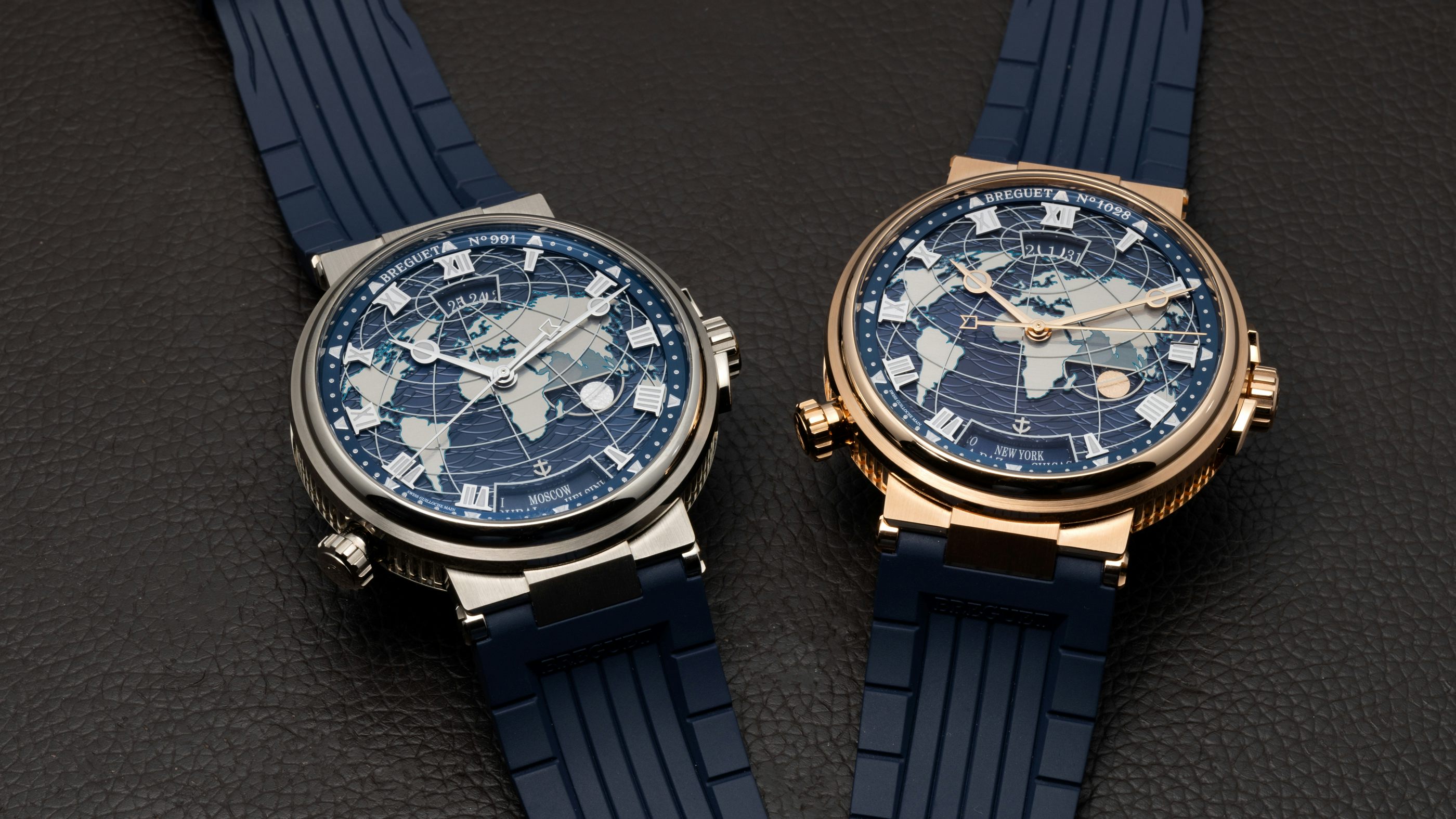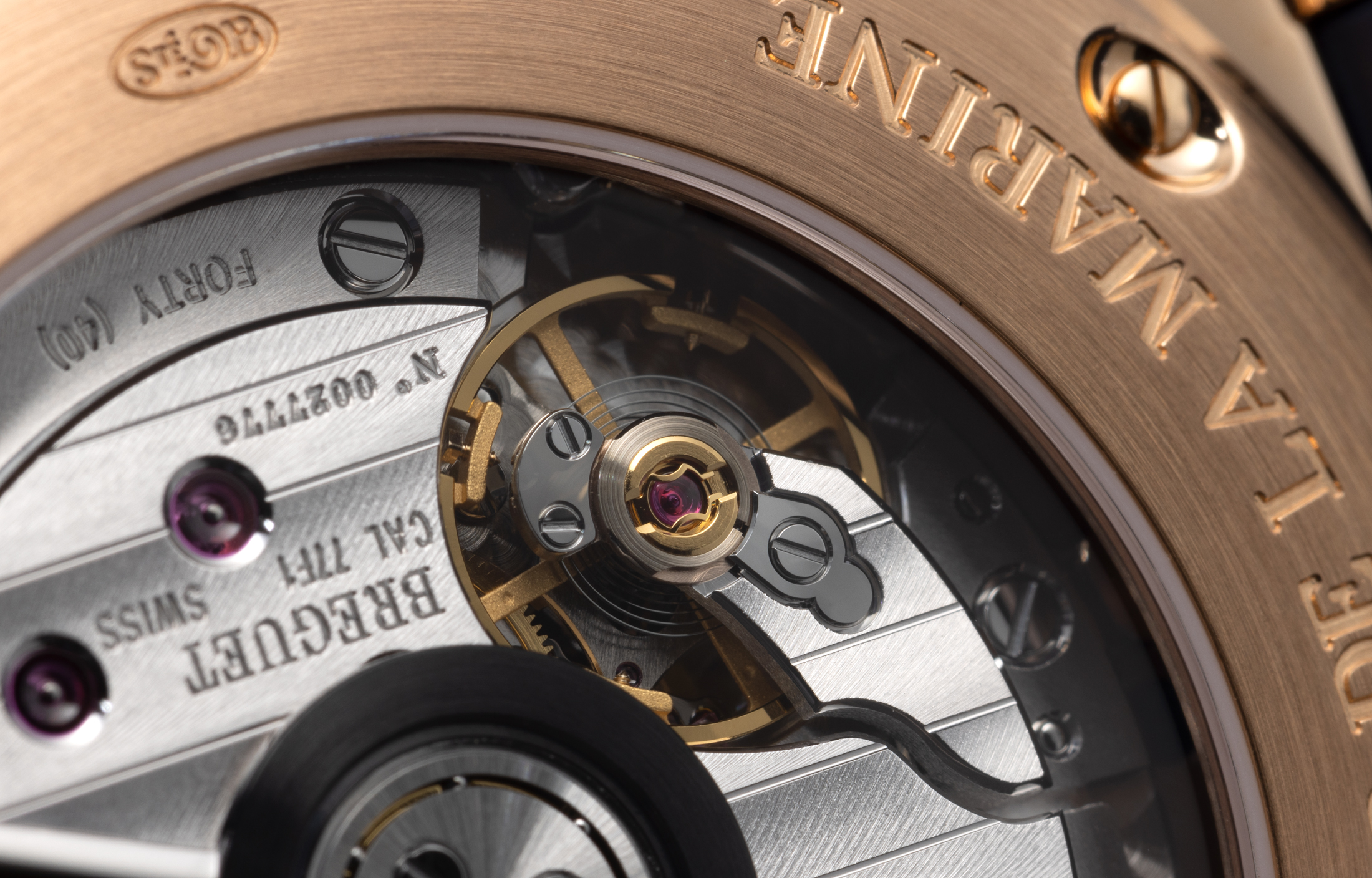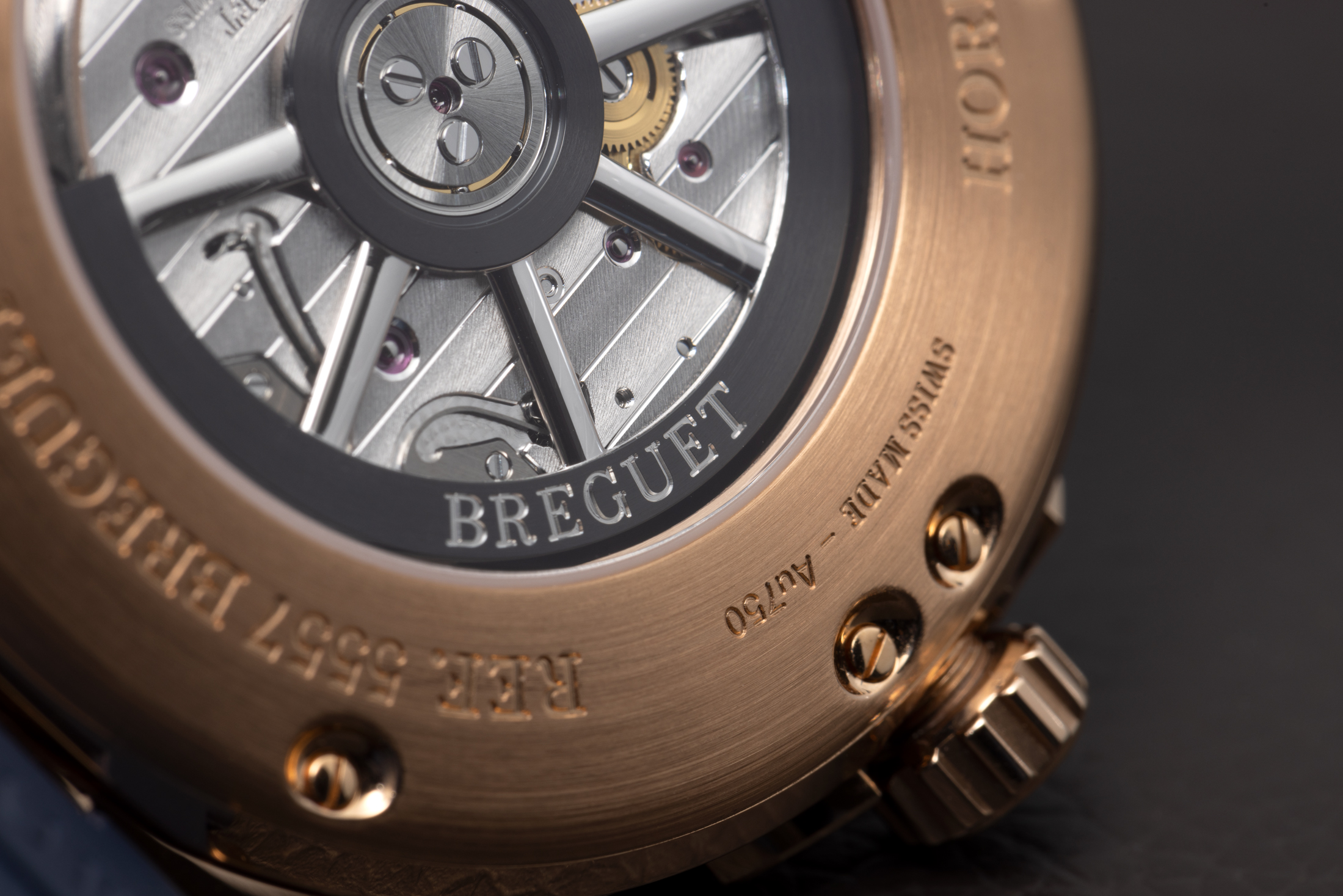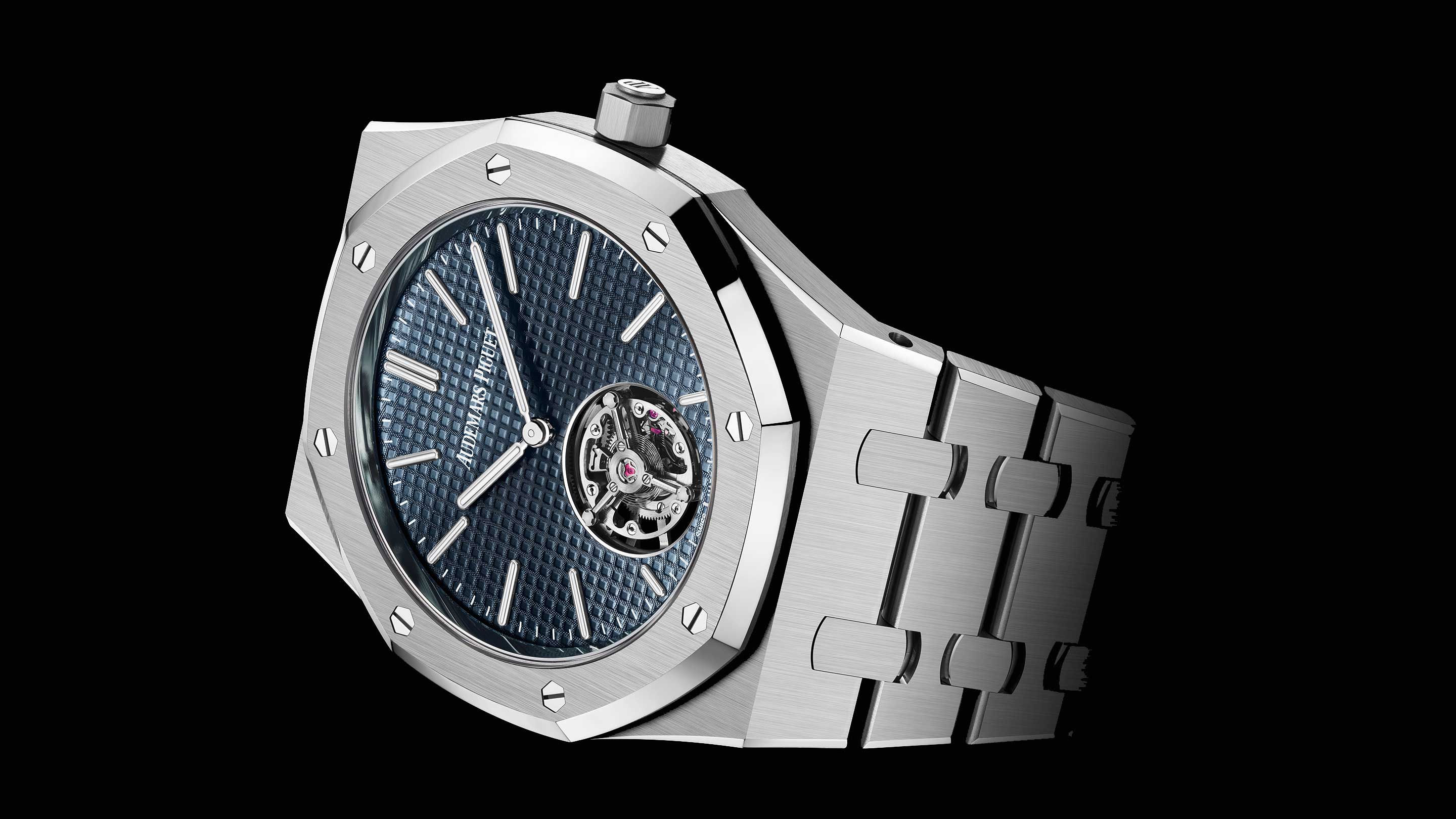The weight of history varies from brand to brand, but there probably isn't a single brand whose founder casts a longer shadow than Breguet. Abraham-Louis Breguet was born in Switzerland but made his fortune in Paris before and after the French Revolution, and he left his mark on virtually every facet of watchmaking. He might be the most striking example of a polymath in watchmaking – an inexhaustible experimenter and horological inventor, he also excelled at design (his watch designs and compositions have influenced some of the greatest horologists of all time, including George Daniels) and even at marketing his own work – just one example are the Souscription pocket watches, which were reasonably priced, high-grade timekeepers that could be ordered with a down-payment, with the balance payable on delivery.
So when Breguet considers doing a complicated watch, the pressure's on, to put it mildly. Breguet took on the two time-zone complication in 2011 when the first Hora Mundi watch (in the Classique collection) came out. The original Classique Hora Mundi looked like a traditional Breguet through and through, albeit on the large side – 43mm x 13.55mm, which is pretty big for a Classique Breguet. Breguet himself is generally thought of as an horologist who, all things being equal, would prefer a thinner watch but he was certainly not averse to giving a movement more space if technical needs demanded it, which is the case with the Hora Mundi models.
Breguet Classique Collection Hora Mundi, 2014
The latest version of the Hora Mundi was launched earlier this year, and we caught up with it in Geneva while there for Watches & Wonders 2022. The new models are in the Marine collection, which, given Breguet's history as a maker of marine chronometers, and the general ocean-going vibe of the Marine collection, in particular, seems especially appropriate. The new Marine Hora Mundi watches are being offered in white or yellow gold and I feel pretty secure in saying that they're the most luxurious, even opulent, Hora Mundi models yet – definitely a first class take on a travel time watch (or hell, a flying private take, as far as that goes).
The new Marine Hora Mundi is slightly larger than the Classique Collection model, at 43.9mm x 18.8mm, but it's also water-resistant to 100 meters, as opposed to the 30-meter water-resistance of the Classique (and one of the bracelet options is a very thick, very comfortable and well-made rubber strap, in case you want to put the "Marine" name to the test). The Marine Hora Mundi is functionally and technically identical to its predecessors but aesthetically, it's a new world. The lower level of the dial depicts stylized ocean waves in hand-applied guilloché, above which is a transparent sapphire disk, decorated with metalized representations of the continents, decorated with horizontal brushing.
The dial has enormous depth and while not literally luminous (except for the lume-filled hands and hour markers), it does have an azure glow emphasized by the gleam of the hand-hammered Sun and Moon on the day/night display at 3:00. There is an aperture showing the city for which the hands show the time and a date display in a window at 12:00.
If you're a fan of dual time-zone watches (or even just an observant generalist enthusiast) you'll notice that something is missing. Dual time-zone watches (also sometimes, if somewhat inaccurately, called GMT watches) usually have two hour hands. One, which is generally settable in one-hour increments either forwards or backward, shows the local time; the other is often a 24-hour hand, which shows the time back at home. The classic example among many (it's a popular complication, thanks to its utility and simplicity of use) is the Rolex GMT Master II. For the Hora Mundi complication, however, Breguet came up with something unusual: A dual time-zone watch that shows either local time or home time "on demand."
Here's how it works. First, you select your home time city, using the crown at 7:00. Next, you use the crown at 3:00 to set the time, date, and day/night indication. The next step is to use the crown at 7:00 to select a second city; as you turn the crown, the time, date, and day/night indicator will automatically update to the correct positions for the second city you've selected. Once you've set your two cities – and this is the party trick – pressing the crown at 7:00 will automatically cause the hour hand, date, and day/night indication to switch back and forth between the two cities, instantly.
Breguet Hora Mundi, caliber 77F1, with silicon escapement
The operation of the dual time-zone system is simple but the watchmaking behind it is not. The position of the hour hand, date, and day/night indications are controlled by two cams, each of which is the program cam for the two chosen cities.
Under the dial of caliber 57F1: The crown/pusher for selecting the cities is at 7:00, adjacent to the two cams for the cities. Image diagrams courtesy Breguet
The pusher at 7:00 controls a double lever. When you press it, one of the two tips of the lever drops onto one of the two cams (alternating which cam at each press). As the tip of the lever drops onto the cam, the cam rotates until the lever tip is resting on the lowest point of the cam. If this reminds you of a chronograph reset-to-zero system, you're right – the heart cam used to reset a chronograph to zero works on exactly the same principle and is in fact, exactly the same shape (basically the geometric figure known as a cardioid). As the cam rotates, the hour hand rotates along with it, to the time corresponding to the city for which the cam has been programmed.
Switching lever mechanism in purple, cams in blue, differential in yellow at the center, and switching gears for the date and day/night display, upper right.
The smooth switching of the hour hand from one position to the next is ensured by a differential placed between the two cams and the day/night indication and date will both switch backwards or forwards as needed, at the same time.
The mechanism is ingenious, simple to use, and offers absolutely no possibility for confusion on the part of the user. You can probably see why, purely from a watchmaking standpoint, this is a bigger watch – the additional systems under the dial for switching all the indications smoothly and instantly with a single push on the crown, demands additional space. Certainly, the complexity of the mechanism, as well as the size and decorative impact of the watch, put it in a class of its own. The question is, is that the class for you? Leaving aside questions of cost, I think the Marine Hora Mundi in particular, and the Hora Mundi complication in general, are apt to appeal to someone with a love of intricate, unexpected technical solutions on the one hand, and visual razzle-dazzle on the other but I also think that even if the Marine Hora Mundi isn't your brand of vodka aesthetically, there's still a lot to love from both craft and watchmaking standpoints.
As a watch writer with an avowed interest in technical watchmaking, I found the Marine Hora Mundi fascinating. Switching the indications from city to city gave me the same weirdly visceral enjoyment I get from operating a chronograph, which is not that surprising when you consider that once you think about the chronograph and the Hora Mundi complication, you realize that at heart (as it were) they have a lot in common. It's a thoroughly enjoyable watch to operate and a knockout to look at, too. Sure, it doesn't have the same spare appeal as something like the GMT-Master II, both functionally and aesthetically it couldn't be more diametrically opposed. If you're looking for tactile enjoyment and mesmerizing visual depth (and, of course, if you're a traveler who likes a little flash and has the cash) the Marine Hora Mundi might just be the ship you want to sail in.
The Breguet Marine Hora Mundi: case, white or rose gold, 43.9mm x 13.80mm with sunburst blue dial, double-layer guilloché and sapphire plates. Movement, Breguet caliber 77F1, with silicon lever, escape wheel and balance spring, running at 4Hz with a 55-hour power reserve. Leather strap, rubber strap, or matching gold bracelet (my personal recommendation for travel is the rubber strap). 100-meter water-resistance; price on a strap, CHF 71,000.
All images by Tiffany Wade, except as noted.
Find out more about the Marine Hora Mundi at Breguet.com.

















































Top Discussions
Introducing The Chopard L.U.C Flying T Twin Perpetual And 'Mark III' L.U.C Lunar One
Introducing The Ōtsuka Lōtec No.5 Kai
Hands-On An In-Depth Look At Vacheron Constantin's New Historiques 222 In Steel